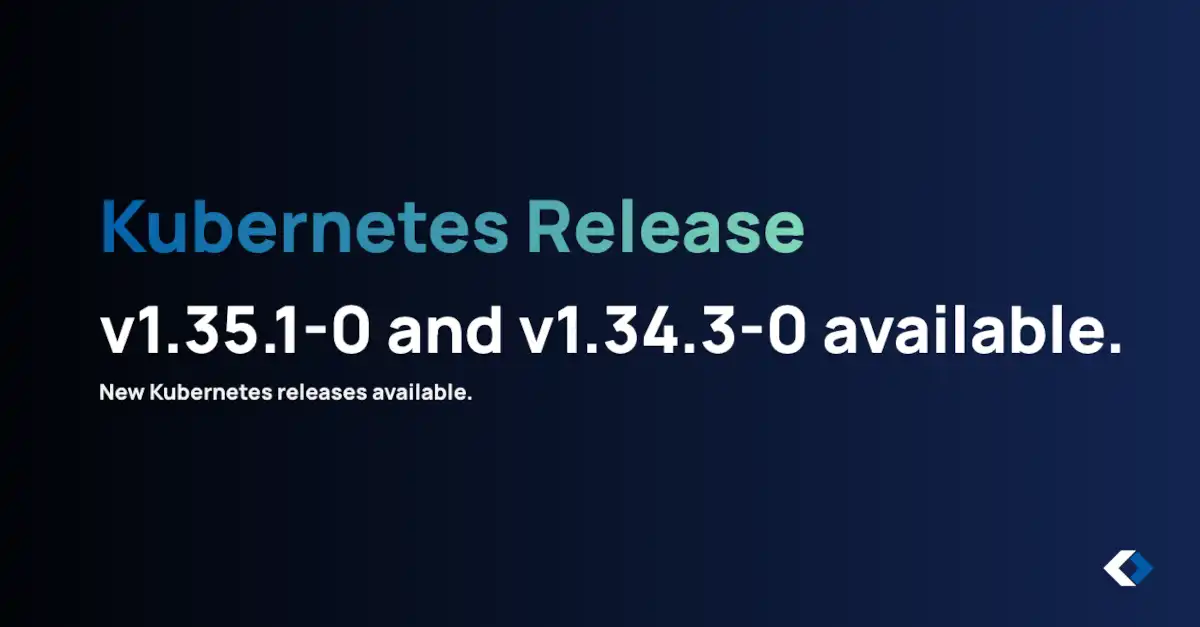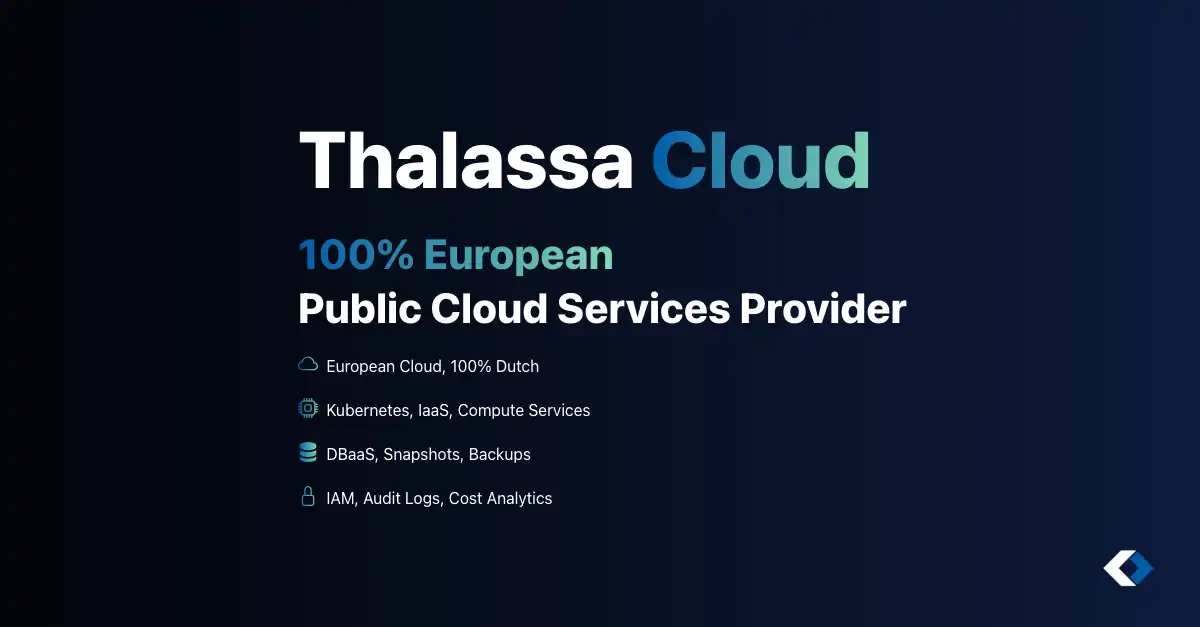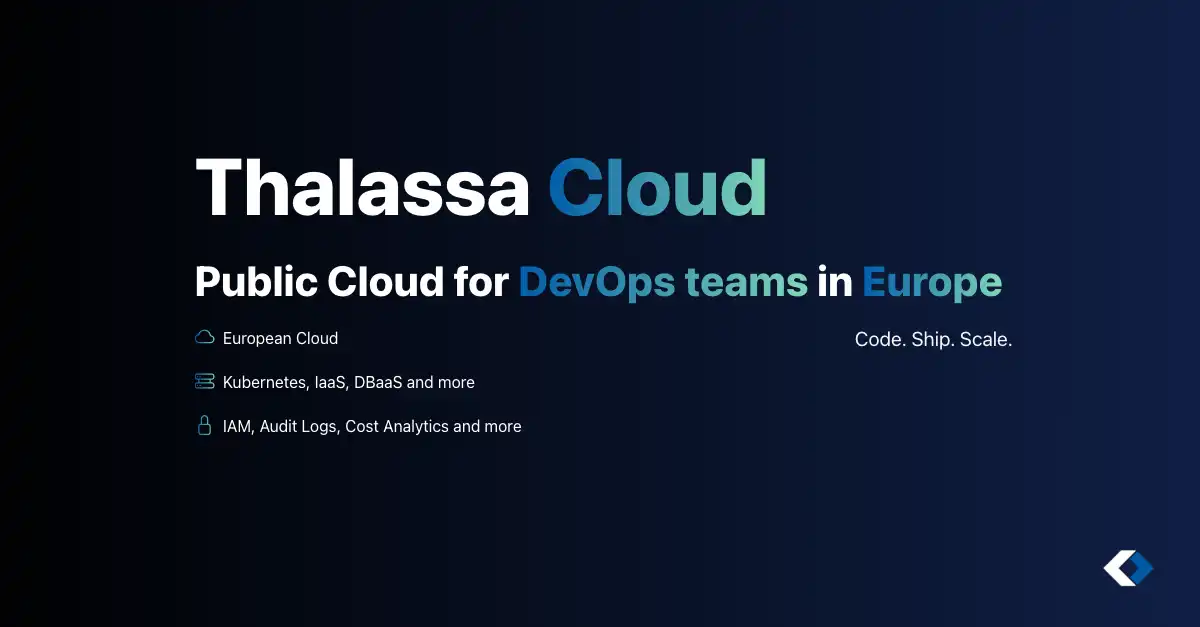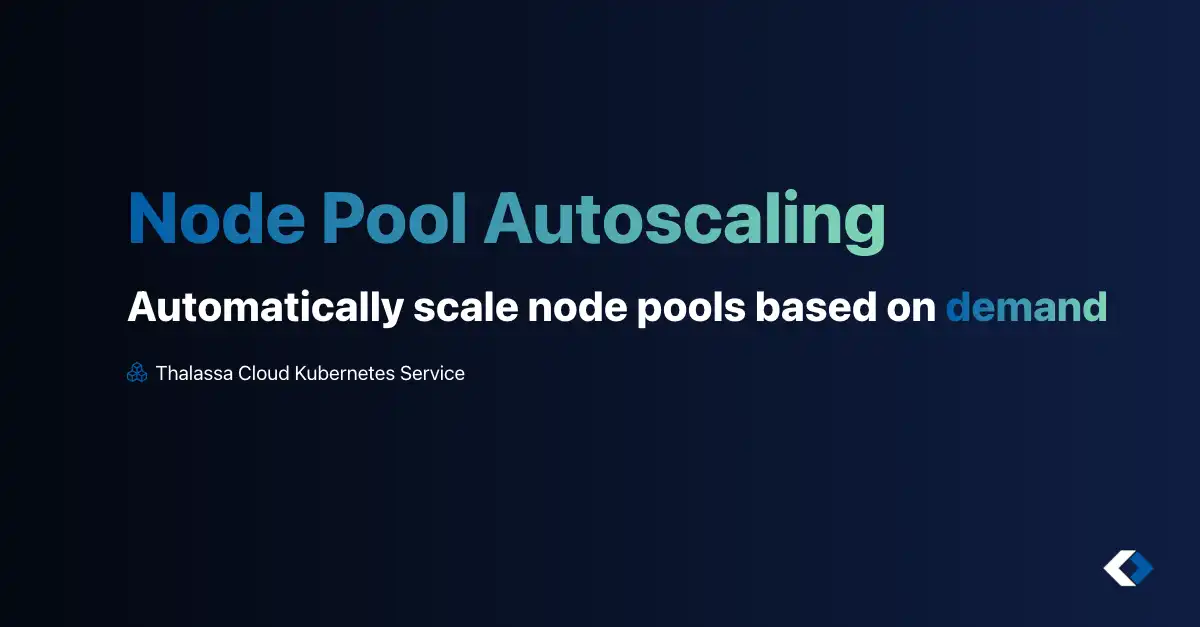
 Thalassa Cloud
Thalassa CloudMenu
- Cloud Services
Compute & Containers
Observability
Storage & Databases
Networking
- Virtual Private Cloud
- Load Balancers
- Firewalls
- Security Groups
- NAT Gateways
- IPSec Site-to-Site Coming Soon
- VPN Gateway (WireGuard) Coming Soon
Security & Identity
For Developers Built for Devs
About Thalassa Cloud
Tools & Information
- Pricing
- Roadmap



